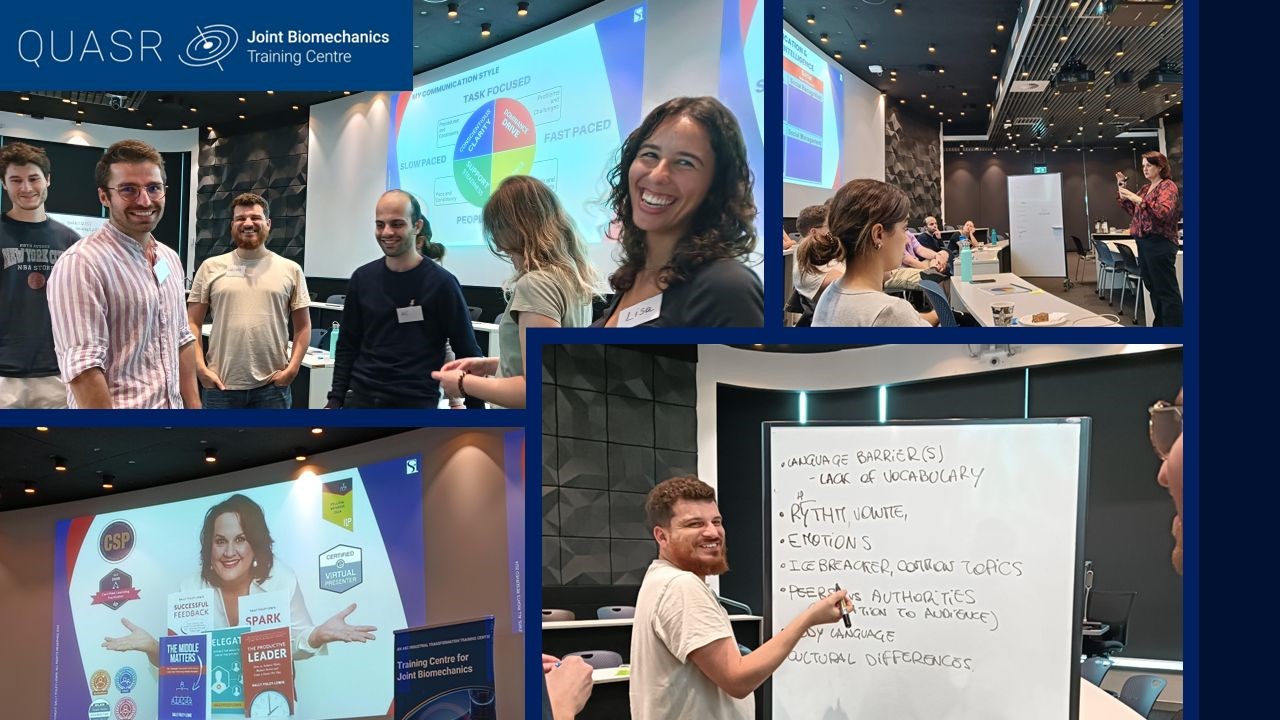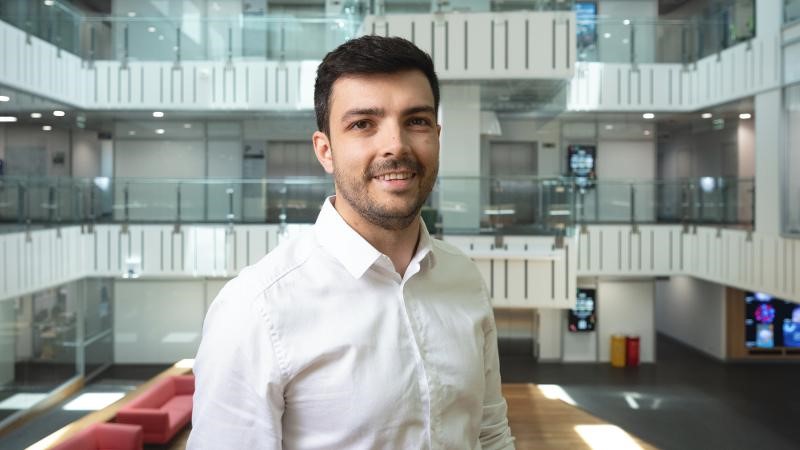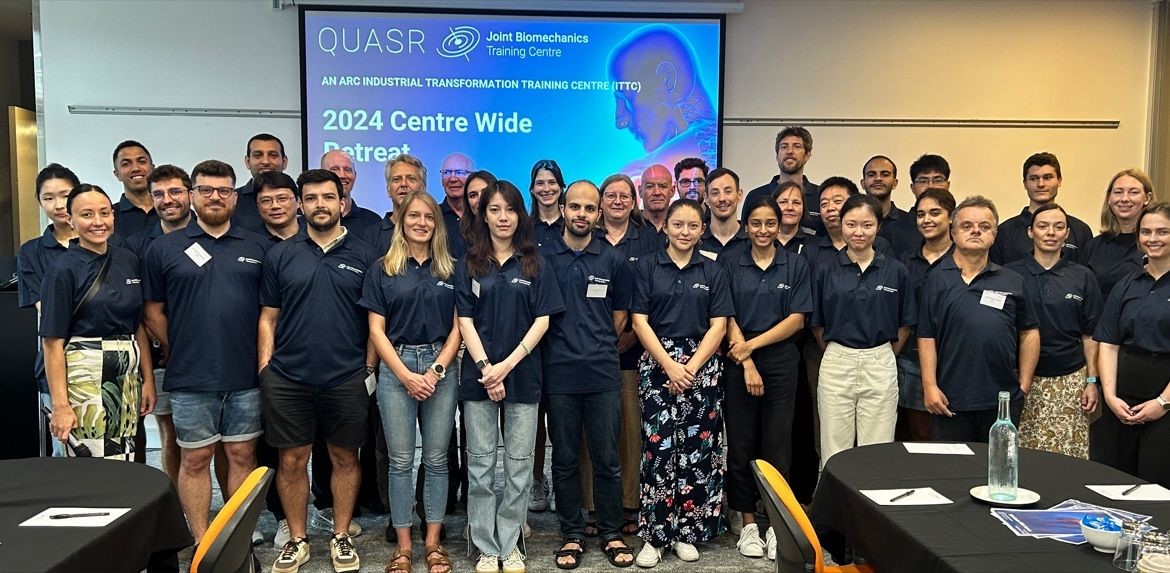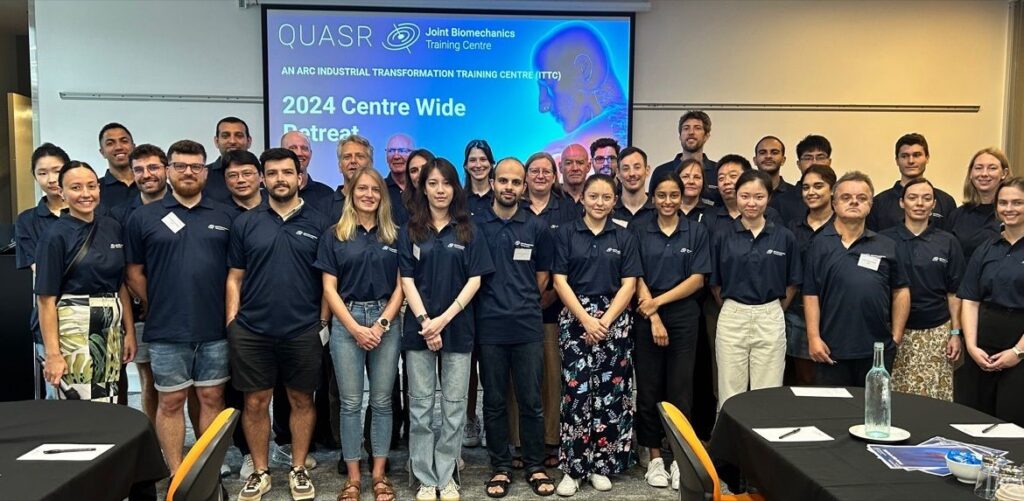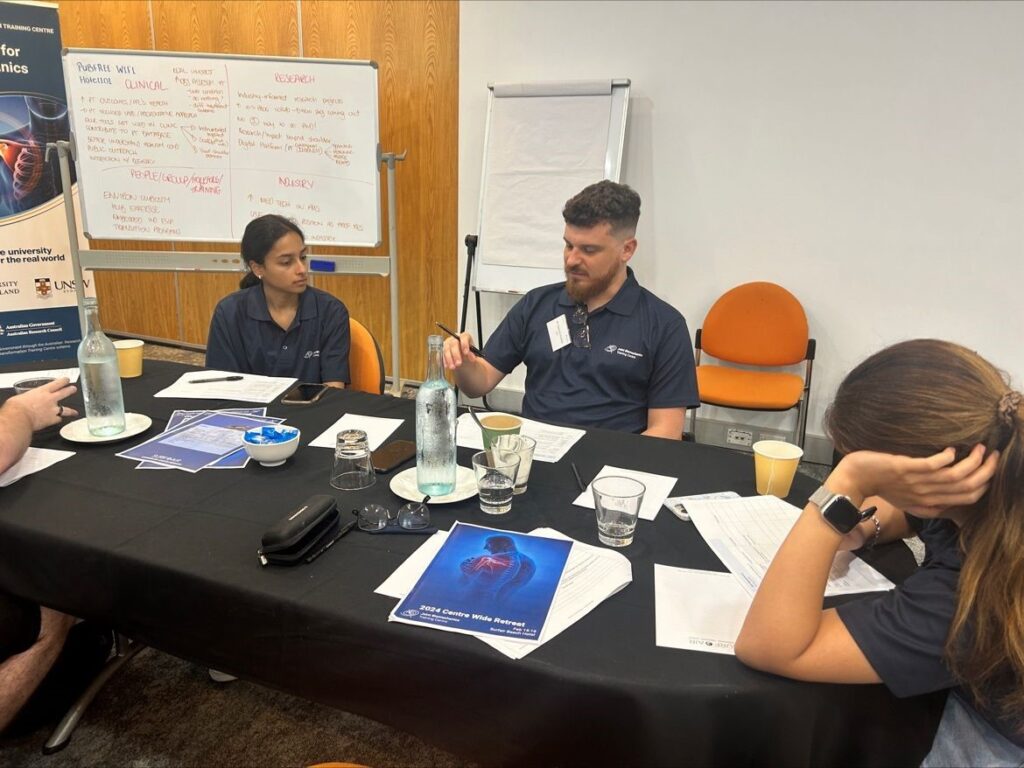Unlocking your potential: Mastering Interpersonal Communication Workshop
May 2 | 2024
On May 2, 2024, the Training Centre for Joint Biomechanics celebrated the success of its recent HDR Communication Workshops with the second iteration of “Unlocking Your Potential: Mastering Interpersonal Communication,” led by the dynamic Sally Foley-Lewis, CSP. As Vice President of Professional Speakers Australia, Sally brought over two decades of speaking experience to our Centre PhD students, helping them refine their communication skills in impactful ways.
Workshop Highlights
During this engaging session, participants explored several key concepts and practical strategies for effective communication:
Foundations of Communication: The session began with a deep dive into the fundamental principles of communication. Students learned about the importance of clarity and effectiveness in conveying messages, essential across diverse settings.
Discovering Your Communication Style: Sally guided participants through an insightful exploration of different communication styles using the DISC model, which categorises styles as Dominance (D), Influence (I), Steadiness (S), and Conscientiousness (C). This helped students understand their own styles and those of their peers.
Engagement Styles: Sally introduced her innovative framework for communication engagement styles, known as ‘B.R.A.I.N.’—Bridging, Rationalising, Asserting, Inspiring, and Negotiating. Students identified areas for personal growth within this framework, enhancing their overall communication proficiency.
Using and Applying Communication Styles: As a certified DiSC assessor and trainer, Sally guided attendees in recognising their own communication styles and adapting them to meet the core needs of others. The emphasis on flexibility underscored the importance of understanding different perspectives.
Linking Communication to Emotional Intelligence: The workshop highlighted the role of emotions in communication. Students discovered how leveraging emotional intelligence can significantly enhance their interactions and relationships.
1:1 Presentation Coaching: Sally engaged students in fun activities to create short presentations, focusing on essential elements such as body language, pace, intonation, and structural tips like the “rule of threes.” This hands-on approach helped reinforce the practical application of their communication skills.
Identifying Roadblocks to Effective Communication: The workshop addressed common obstacles such as assumptions, biases, and misinterpretations. Students were equipped with strategies to navigate these roadblocks and enhance their communication efficacy.
General Tips to Improve Communication:
- Putting Problems in Your Hand: Sally emphasised addressing challenges with a calm and collaborative approach, fostering a more conducive environment for problem-solving and rapport-building.
- Mirroring Body Language: Attendees learned the subtle art of mirroring body language to build rapport and enhance communication. Nonverbal cues can speak volumes!
- The Art of Listening: Active listening was highlighted as a cornerstone of effective communication and relationship-building, showcasing its significant impact.
Valuing Differences: Participants learned to appreciate the diversity of communication styles and how to adapt their approach based on individual differences, fostering a more inclusive environment.
Building Strong Relationships: Sally emphasised the critical connection between effective communication and relationship-building, offering techniques to establish trust and rapport in professional settings.
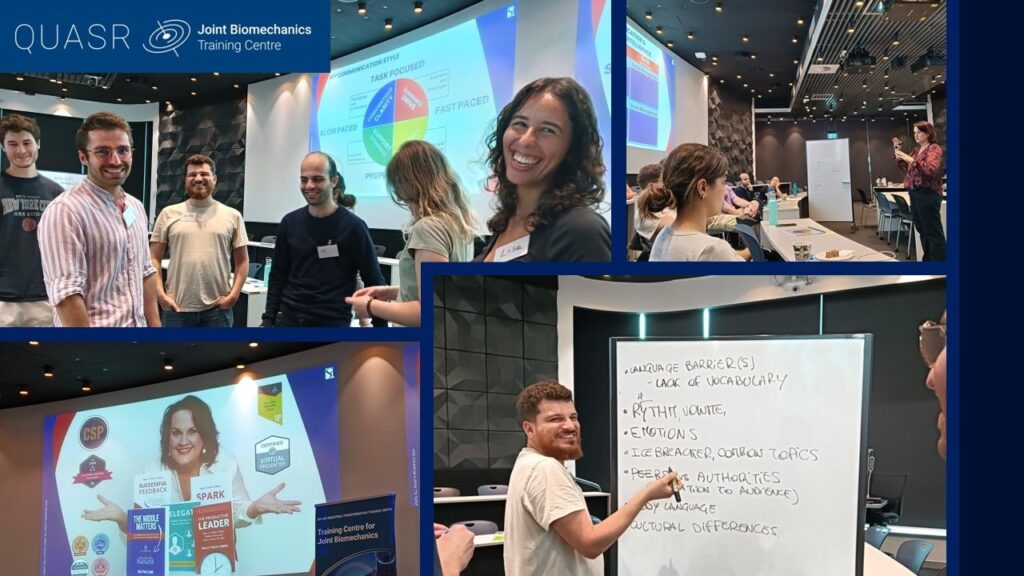
About Sally Foley-Lewis, CSP
Sally Foley-Lewis is a global expert with over 20 years of experience across various industries in Germany, the Middle East, Asia, and Australia. As a Certified Professional Speaker and recognised LinkedIn Top Voice, she has authored multiple books on leadership, productivity, and communication. Her coaching and training efforts focus on enhancing self-leadership and boosting productivity.
Looking Forward
We commend all attendees from the Centre, the Australian Cobotics Centre, and the QUT School of Mechanical, Medical and Process Engineering for stepping onto the centre-stage to practice these essential skills. Our Centre is committed to cultivating effective change-makers in their fields, and we believe that great partnerships begin with meaningful conversations and ideas.
As we continue this journey of skill development, we look forward to further workshops and training sessions aimed at empowering our graduates to excel in their research and professional endeavours. Let’s keep training and growing together!

